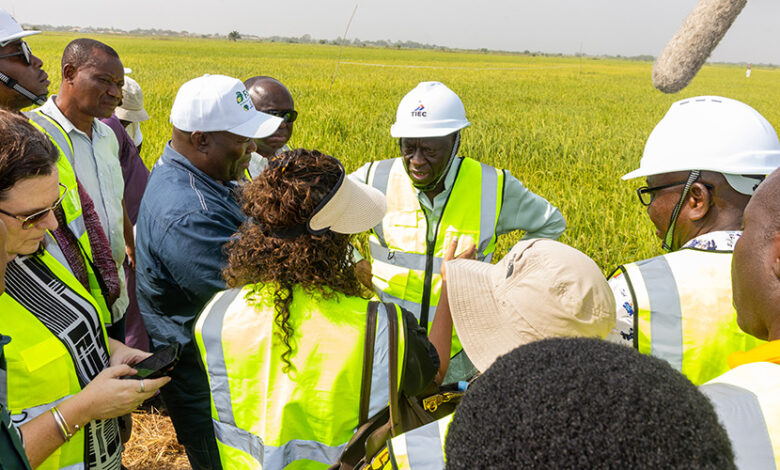World Bank Endorses Ghana’s NEIP as Model for Agrifood Job Creation, Commits $9 Billion to Sector by 2030

Ghana’s National Entrepreneurship and Innovation Program (NEIP) has caught the attention of the World Bank as a model of transformative agricultural practice, with the institution committing to ramp up agribusiness investment across Africa to $9 billion annually by 2030.
In a jointly authored blog by Ousmane Diagana, World Bank Vice President for Western and Central Africa, Chakib Jenane, Regional Director for Sustainable Development, and Steven Were Omamo, a Senior Agricultural Economist, the NEIP was cited as a “promising example of good practice” in supporting agribusiness ventures through targeted programming.

Alongside Ghana’s NEIP, Nigeria’s Anchor Borrowers Program was also acknowledged for its smallholder support structure—although the authors noted the need for consistency in design and follow-up.
The blog, titled, ‘The hidden jobs engine: unleashing the potential of agriculture in sub-Saharan Africa’, outlines a strategic shift in development priorities that centers agriculture as a key driver of employment and sustainable growth on the continent. “The time to act is now,” the authors stress, warning that with 362 million African youth set to enter working age in the next decade but only 151 million jobs projected, urgent intervention is needed to avoid a lost generation.
To address this looming jobs crisis, the World Bank is calling for five bold shifts:
-
Invest in agrifood value chains – seeing agriculture as an ecosystem for employment, not just productivity.
-
Scale youth-focused skills programs – promoting innovation through digital and climate-smart training.
-
Strengthen rural infrastructure – improving logistics and market access.
-
Reform land and finance systems – especially to unlock opportunities for women and youth.
-
Align public policy and financing – by redirecting subsidies to high-impact, job-creating innovation.
The move signals a pivot away from traditional subsidy-led models to job-intensive, innovation-focused support, with Ghana’s NEIP seen as an early mover in that direction.
The International Finance Corporation (IFC), the World Bank’s private sector arm, is also stepping in with investment in food corridors and agribusiness ventures designed to connect producers to markets and stimulate job creation.
As the authors note, agriculture must be repositioned from being a fallback to a “frontier of economic transformation.” The NEIP’s recognition on a global platform underscores Ghana’s growing role in shaping Africa’s future agri-economy.
The question is not whether agriculture can create jobs, but whether governments, donors, and investors will support the sector with the urgency and ambition required. Failure to act risks squandering this opportunity—and jeopardizing an entire generation.




